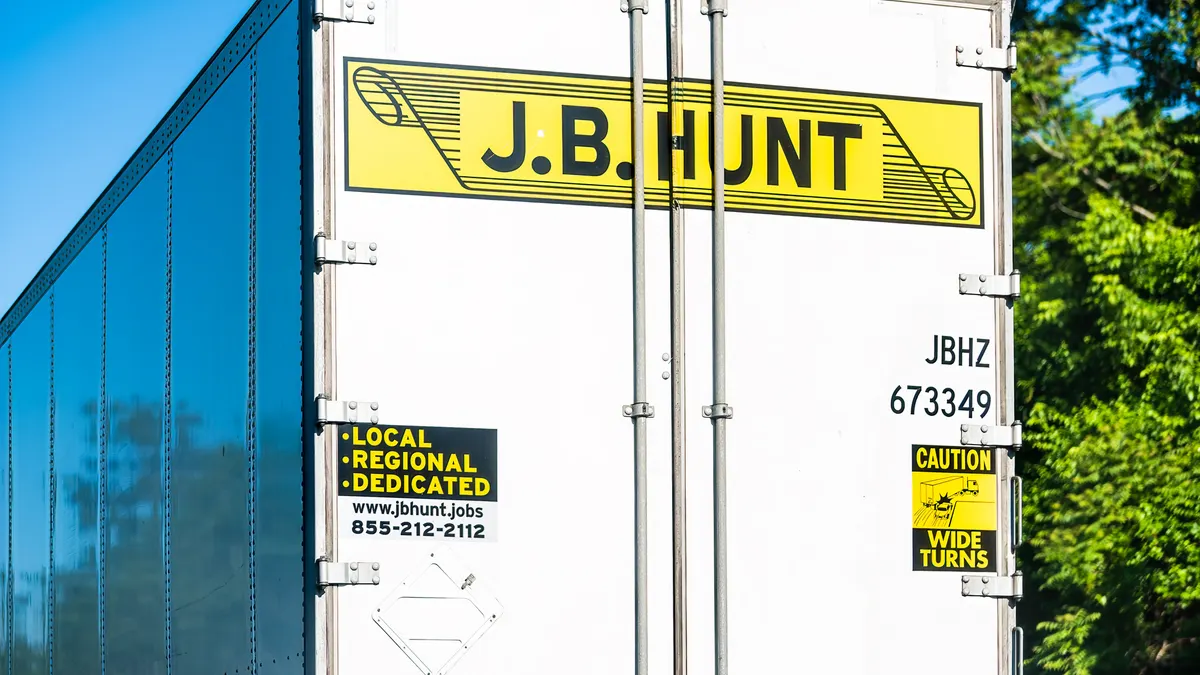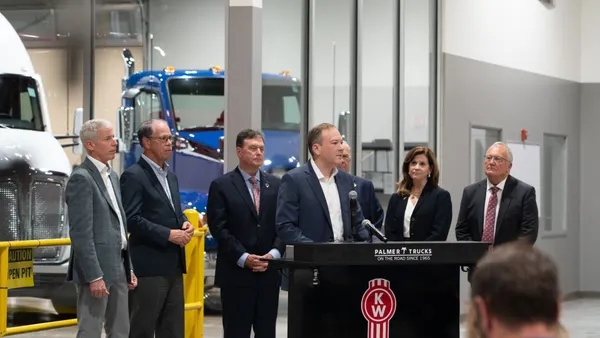SAN DIEGO — Wabash and Werner lawyers noted how the choice of words can complicate legal cases, panelists said at the American Trucking Associations’ 2025 Management Conference & Exhibition.
In an era where insurance costs are rising and nuclear verdicts can wipe out companies, industry leaders advocate for fair court proceedings.
“I think sometimes on the defense side, we're too quick to adopt a plaintiff attorney's verbiage,” ATA Deputy General Counsel Pamela Blass Bracher said Oct. 28 as moderator for a legal session, “Leadership Strategies for Navigating Lawsuit Abuse.”
Even language in policies can be used against companies. Despite a carrier having safety at its forefront, using terms such as “students” instead of “placement drivers” who get report cards on their developing skills can create legal challenges, session panelist and Werner Enterprises President and Chief Legal Officer Nathan Meisgeier said.
Werner previously used that wording, but a lawsuit involving the carrier led the business to switch that terminology, Meisgeier said. That included switching the term trainers to leaders, he said.
Meisgeier said those legal debates don’t make his business safer. “We're already focused on the things that make our company safe,” he said.
Panelist Kristin Glazner — senior vice president, chief administrative officer, general counsel and chief human resources officer at Wabash — advised using jury consultants to provide external feedback to help navigate legal matters.
Panelists also noted how the media can limit getting a business’ story out, and Glazner said that plaintiffs and their attorneys can also try to control the language used as well as the storytelling.
“Our industry is viewed very much monolithically as having a certain perspective,” she said. “And I want us to be loud on safety — because I think that perspective can help us storytell and give confidence to the public.”
Different courts can also restrict the kind of language attorneys use before juries. In certain contexts, judges can make such evidence inadmissible on the basis of those facts being unfairly prejudicial.
“About half of the states in the United States, if someone is injured in an accident and their injury was caused in part by their failure to use their seat belt, the jury is not allowed to hear that information,” Meisgeier said.
The American Tort Reform Association has challenged that framework, and states such as Georgia, Missouri and West Virginia have peeled back restrictions in recent years.
Industry advocates want to address restrictions on seat belt use evidence. Werner seeks to revisit the matter in Nebraska, where it’s headquartered, Meisgeier said.
He advised industry leaders to get involved with a state association or the ATA to drive change. “What does that mean? It means stirring up your associate base to make sure that they're calling their legislators,” he said. “Make sure that their legislators know that their constituents are passionate about a level playing field.”













